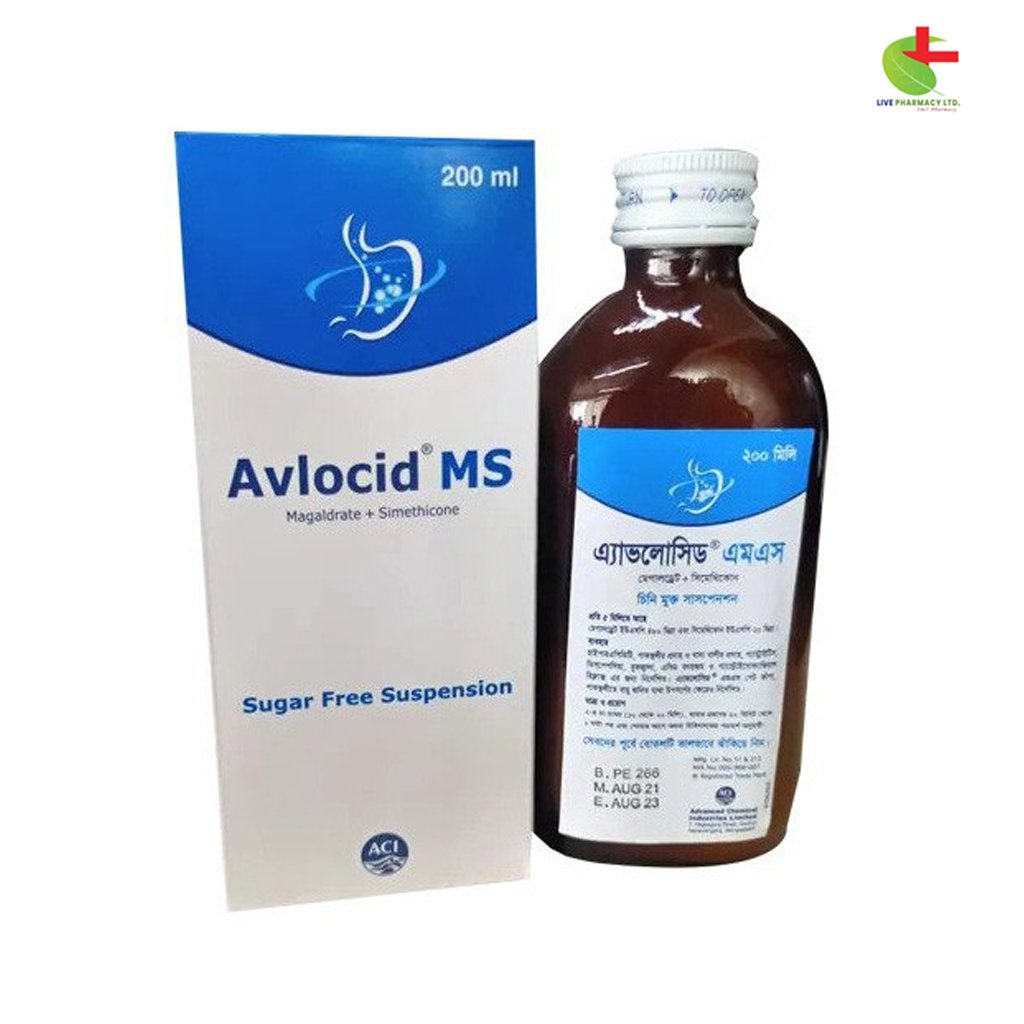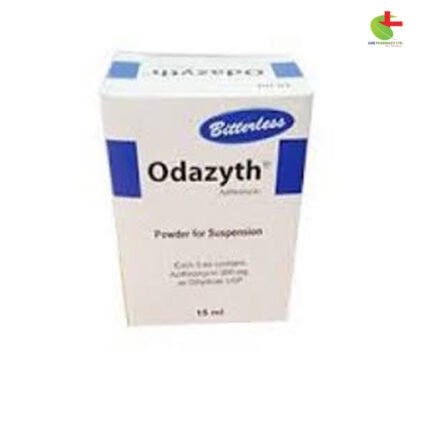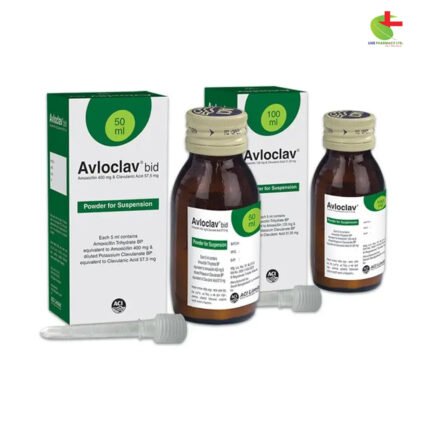Avlocid MS
100.30৳ Bottle (200ml)
- Magaldrate is an effective antacid for relieving heartburn, acid indigestion, dyspepsia, and gastroesophageal reflux.
- Provides relief from flatulence, abdominal bloating, and discomfort due to peptic ulcers and gastritis.
- Neutralizes stomach acid and reduces gas buildup.
- Available in chewable tablets and suspension form for convenient administration.
 Brand
Brand
|
ACI Limited |
|---|---|
 Generics
Generics
|
Magaldrate + Simethicone |
 Type
Type
|
Oral Suspension |
Indications
Magaldrate is used to effectively relieve symptoms associated with dyspepsia, heartburn, acid indigestion, sour stomach, gastroesophageal reflux (GERD), and hiatal hernia. It is also recommended for hyperacidity linked to peptic ulcers, gastritis, and esophagitis. This medication can be safely administered to children when necessary. Additionally, it provides relief from flatulence, abdominal bloating, and windy colic.
Always use as directed by a registered healthcare professional.
Pharmacology
Magaldrate is a combination of magnesium-aluminum compound (Hydroxymagnesium Aluminate) and simethicone. The magnesium compound neutralizes gastric acid rapidly, maintaining the pH between 5 and 6, and reduces pepsin activity in gastric secretions. Simethicone works by helping gas bubbles coalesce, providing relief from flatulence.
Dosage & Administration
- Tablet: Take 1-4 chewable tablets, 20 to 60 minutes after meals and at bedtime, or as prescribed by a doctor.
- Suspension: Take 2-4 teaspoonfuls (10-20 ml) of suspension, 20 to 60 minutes after meals and at bedtime, or as advised by your physician.
Always follow the recommendations of a registered healthcare provider.
Interactions
Magaldrate should not be taken with Tetracycline as it may reduce its effectiveness. The drug can also slow down the absorption or reduce the bioavailability of other medications such as propranolol, isoniazid, prednisolone, and naproxen.
Contraindications
Magaldrate is contraindicated in individuals with a known hypersensitivity to magnesium or aluminum. It should also be avoided by patients with impaired kidney function.
Side Effects
Gastrointestinal side effects are uncommon. However, in rare cases of excessive consumption, patients may experience diarrhea, constipation, or regurgitation.
Pregnancy & Lactation
Magaldrate may be used during pregnancy if necessary but should be taken in moderation. Although magaldrate may pass into breast milk, it has not been reported to cause any problems in nursing infants.
Precautions & Warnings
Use with caution in individuals with decreased kidney function, hypophosphatemia, or frailty.
Overdose Effects
Overdosing on magaldrate is rare, but if it occurs, it may result in gastrointestinal disturbances. Immediate medical attention is advised.
Therapeutic Class
Magaldrate is classified as an Antacid, Anti-dyspeptic, and Carminative.
Storage Conditions
Store below 30°C in a dry place, away from light and moisture. Keep out of the reach of children.













Reviews
There are no reviews yet.